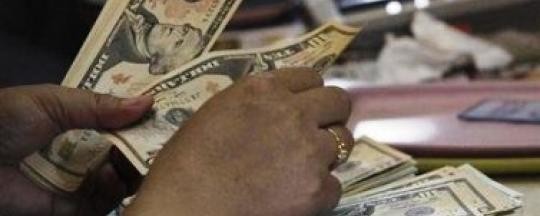Sudan’s pound has slumped to record lows against the dollar in the black market amid fears that fighting in the Upper Nile fields could cut crude oil exports.
South Sudanese rebels have vowed to seize crude-producing areas to starve the military of revenue. Earlier this month they attacked Renk, which lies along the pipeline route from the Palouj field to the Red Sea.
Under the terms of a 2012 agreement, Sudan earns pipeline and transit fees for allowing South Sudan to export oil through its territory. The fees were projected to earn Sudan about $1.4 billion in revenue in 2014, according to the International Monetary Fund.
The earnings from the transit fees are paid in dollars and therefore help mitigate Khartoum’s problem of foreign currency shortage.
“Transit fees mitigate this problem and also increase the central bank’s ability to support the local currency,” explained Ezz al-Din Ibrahim, a Khartoum-based economist and former state minister of finance, in an interview with Bloomberg news.
But fears that fighting in South Sudan could affect oil exports have reduced the availability of hard currency in the black market. Trade volumes in dollar currency are reported to be ‘very weak,’ according to a trader.
The price of the dollar was 9.1 pounds per dollar on Monday, 29 April, in the capital Khartoum, according to two money changers interviewed by Bloomberg, whereas traders interviewed by Radio Dabanga on 24 April put the number even higher, at 9.3 Sudanese pounds per dollar.
That compares to a black market rate of about 8.5 on 24 March and 8.2 at the end of February, according to Radio Dabanga.
Meanwhile, Bloomberg also reports that a $1 billion loan from Qatar that was earlier announced as a key remedy to the currency problem is not apparently being used to bolster the currency.
“It seems that the central bank isn’t using the deposit to ease pressures on the pound,” said Mohamed Al-Jak, an economics professor at the University of Khartoum. “There must be other spending priorities.”




